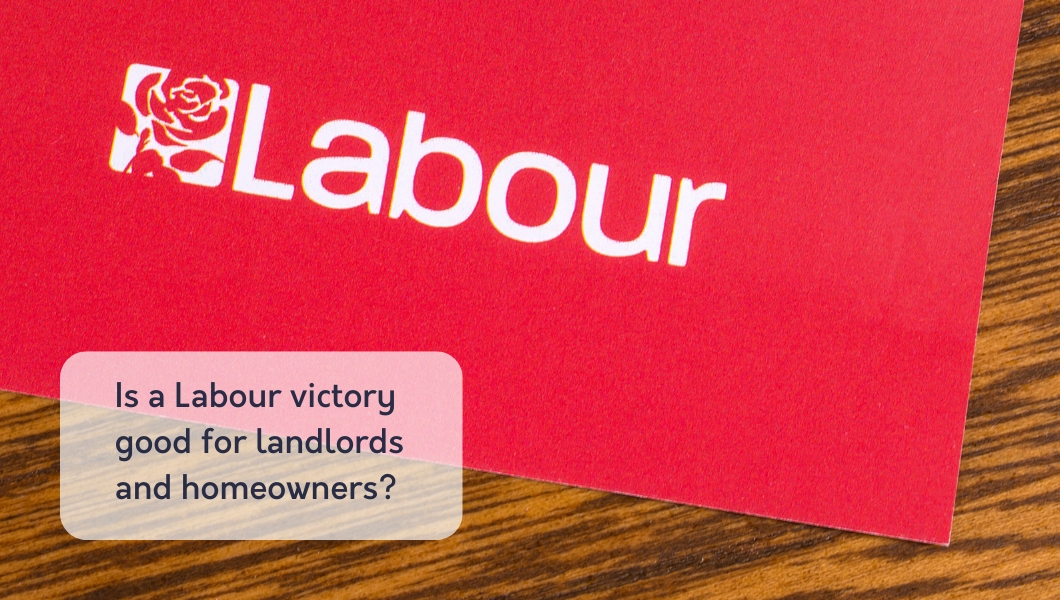This article looks at whether Labour’s policies are good for our clients: landlords and vendors.
Policy: Banning bidding wars on rental homes
Good or not? Good. They create as many problems as they solve and they have disappeared from the market in 2024 as demand has calmed down so this policy is not a material change to how we operate. Keir Starmer floundered when Fiona Bruce pushed him for detail pre-election. This policy is not in the Manifesto and it seems that Labour was having a last-minute policy panic.
Policy: Build 300,000 homes a year for five years
A laundry list of policies support Labour’s headline goal, including:
- Reforms to planning process
- Restore mandatory housing targets
- Force Local Authorities to have a published Local Plan
- New devolved powers to local regions
- 300 new planners funded by a 1% additional SDLT for non-UK buyers
- Reform compulsory purchase with fair not inflated values
- More brownfield development
Good or not? Who doesn’t want more houses? Well, NIMBYS for a start, but the headline 300K figure is welcome given net migration was 685,000 last year. The problems arise with delivery.
It is one thing for Rachel Reeves to announce the re-introduction of top-down housebuilding targets, but Labour is not paying for these homes; they are reliant on private sector money, land and motivation and the large housebuilders act for their shareholders, not politicians.
The unspoken threat is a land tax to bring land banks forward, but Labour must tread carefully: if they stress the housebuilders then building will decrease. Apparently, 3,000 planners have left the industry in the past ten years so ‘300 new planners’ looks good on paper but is not enough.
The big question is distribution – where will the new homes be? Affordability, greenbelt pressure and planning indigestion coalesce in the South East. Can a devolved planning structure funnel homes to the right places? All these questions.
Policy: New golden rules to protect Greenbelt and build on lower quality ‘grey belt’; building a ‘generation of New Towns’
“Without changing its purpose or general extent, Labour will take a more strategic approach to greenbelt land designation and release to build more homes in the right places.”
Good or not? The jury is out. The Tories could not deliver on housing targets as its back-bench rural MPs obstructed successive Prime Ministers. Labour is different: their base is urban, not rural, and we will see the Greenbelt built on. The ‘grey belt’ term feels like spin, not substance. New Towns have been a post-WW2 success (nobody laughs at Milton Keynes now) but they take time and will not increase supply for years.
Policy: ‘Ending’ Leasehold and enacting the Law Commission’s recommendations for enfranchisement, right to manage and commonhold; banning new leasehold flats and ensuring commonhold is the default for apartment blocks; crack down on “unregulated and unaffordable” ground rents and maintenance charges.
Good or not? In theory, good. Leasehold has a pernicious PR problem and it is now much harder to sell a leasehold property than freehold as our exasperated sales progressors will tell you. Will Labour legislate to force freeholders to turn existing leases into commonhold? Sounds complicated. The well-intentioned Building Safety Act will still be in place with its problems (e.g. asking landlords/freeholders to sign the certificates which some refuse to do). Ground rents can be capped but how do you legislate to constrain service charges? What if costs really are inflating? This battle will run and run.
Policy: End Section 21 immediately and pass the Rent Reform Bill.
Good or not? Not as bad as you think. We are comfortable with ending Section 21 as we ‘evict’ very few tenants. With 99+% of our rent collected on time, we have few non-payers but we are worried that the court system will not cope with the revised Section 8 process. The end of fixed-term tenancies is baffling as periodic tenancies give tenants less security, not more. More interesting will be if Labour makes the Decent Homes Standard compulsory in the private rental sector. If this has teeth – and sadly most rental legislation lacks enforcement – then it could become a lever to raise standards.
Policy: Extend ‘Awaab’s law’ to PRS
Good or not? Great. Awaab died in 2020 aged two due to mould in a Rochdale Boroughwide Housing home despite persistent complaints from his parents. This tragic and haunting death triggered the Social Housing Regulation Act 2023 which forces landlords to respond to and fix health hazards in certain timelines. Mould causation can be ambiguous (building issues vs tenant behaviour) but surely raising standards on this issue is in everyone’s interests?
Policy: Freedom to Buy mortgage guarantee scheme
Good or not? Good but not enough. There is an existing guarantee scheme for new builds only in which the Government gives the lender a guarantee for up to 14.5% of a property’s value to encourage lending to those with a 5% deposit. The policy is good but it covers only 80,000 sales whereas over 50% of the 4.4 million people in the PRS want to own a home.
Policy: Warm Homes Plan with £6.6bn to improve five million homes
“The Warm Homes Plan will offer grants and low-interest loans to support investment in insulation and other improvements such as solar panels, batteries and low carbon heating to cut bills. We will ensure homes in the private rented sector meet minimum energy efficiency standards by 2030”.
Good or not: Good but not enough. At £1,320 per property for these five million, it may not even touch the sides given that the UK has the oldest housing stock in Europe and that double-glazed windows and a heat pump for a 3-bed semi could be £10-15K. The drive for improved energy standards in the PRS would be welcome if there were bona fide tax breaks, grants and incentives for landlords and if EPCs are overhauled to make them a measure of actual energy usage, which they are not.
Policy: increase Capital Gains Tax on property sales
Good or not? You caught me, it is not a Labour policy but it seems that CGT will increase post-election, particularly as only 3% of the population pay it over a 10-year period. It is clearly not good for landlords wishing to sell, nor for second homeowners. Proponents argue that it is progressive (making the wealthier pay more).

